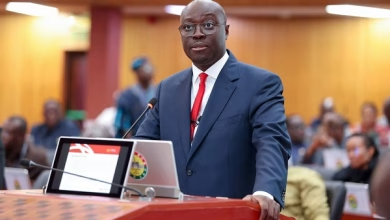The Institute of Energy Security (IES) has joined the growing chorus of voices calling for the merger of the Public Utilities Regulatory Commission (PURC) and the Energy Commission of Ghana. This proposal has been gaining traction among industry experts and policymakers, and for good reason. By combining the two regulatory bodies into a single entity, Ghana can streamline regulatory functions, reduce operational costs, and eliminate potential overlaps in the oversight of the energy sector.
According to the IES, a unified regulatory authority would not only lead to cost savings but also enhance the overall efficiency and effectiveness of energy regulation in Ghana. Executive Director of IES, Nana Amoasi IV, believes that a single regulatory body would significantly improve policy formulation and implementation within the sector. This is critical, given the current challenges facing Ghana’s energy landscape.
Nana Amoasi IV stressed that merging the PURC and the Energy Commission would address some of the energy challenges by streamlining decision-making processes and reducing bureaucratic delays. He pointed out that in the West African power pool, regulators operate under a single entity, making policy formulation and implementation more efficient.
The PURC has been working to protect the interests of consumers and utility service providers, ensuring that they provide quality services. However, with a merger, the regulatory body could focus on more pressing issues, such as promoting competition and innovation in the energy sector.
A single regulatory authority would also help to reduce confusion among consumers and stakeholders. Currently, the PURC and Energy Commission have different roles and responsibilities, which can lead to overlap and confusion. By consolidating these functions, Ghana can create a more coherent and effective regulatory framework.
The Energy Commission Act of 1997 and the PURC Act of 1997 provide a foundation for the merger. These laws established the Energy Commission and PURC as separate entities, but they also provide scope for consolidation and reform.
In other regions, such as the Northern Region, the PURC has been engaging with stakeholders to ensure consumer compliance with electricity and water services. A merged regulatory body could build on these efforts, promoting a culture of responsibility and efficiency in the energy sector.
The benefits of a merger extend beyond cost savings and efficiency gains. A unified regulatory authority could also enhance Ghana’s competitiveness in the regional energy market. By streamlining regulatory processes and reducing bureaucratic delays, Ghana can attract more investment and innovation in the energy sector.
As Ghana continues to navigate the complexities of its energy landscape, a merged regulatory body could provide a much-needed boost to the sector. With the IES throwing its weight behind the proposal, it’s likely that we’ll see further momentum building behind this initiative in the coming months.
The merger of the PURC and Energy Commission has the potential to transform Ghana’s energy sector, promoting efficiency, innovation, and competitiveness. As the country moves forward, it’s essential that policymakers prioritize this critical reform.
